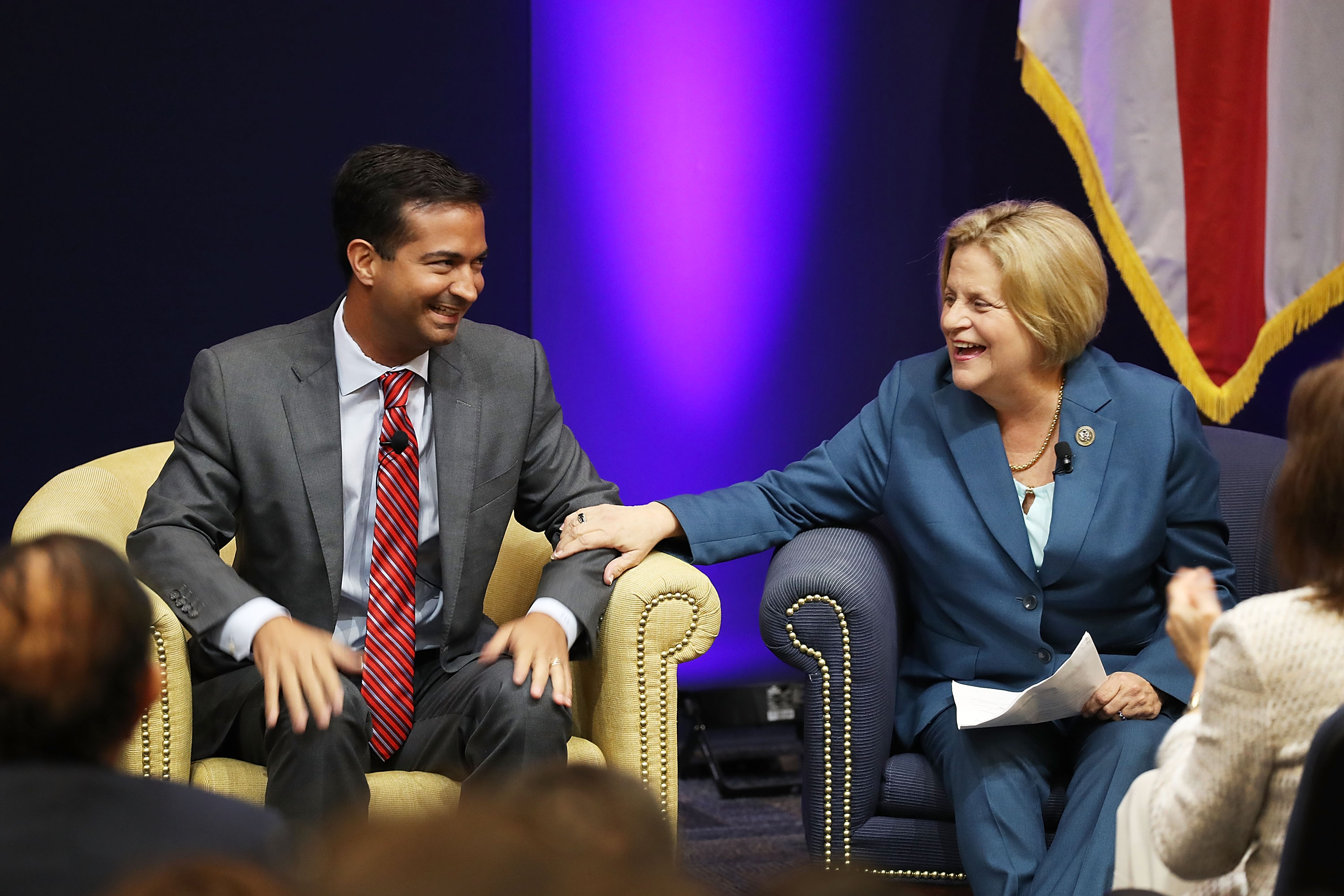A Republican congressman, who is in a tight reelection race against a Democrat to continue serving a district in the Chicago suburbs, is touting his membership in the House Climate Solutions Caucus as a reason to vote for him. His voting record, however, tells a different story.
At a televised debate in Chicago Monday night, Rep. Peter Roskam (R-IL) and his Democratic challenger, Sean Casten, were asked by the moderator to describe how worried they are about climate change and the dire predictions in the new U.N. Intergovernmental Panel on Climate Change (IPCC) report.
Roskam told the moderator that he was concerned enough about climate change to join the House Climate Solutions Caucus and “be a part of a group that’s trying to come up with a remedy.”
The House Climate Solutions Caucus was founded in February 2016. Roskam joined the caucus this past May, more than two years after it was formed.
There’s a long list of Democrats waiting to join the caucus; there is no waiting list of Republicans. Based on the rules of the caucus, members must join in bipartisan pairs. So, if Roskam had wanted to join the caucus in early 2016, soon after it was formed, there would have been many Democrats willing to pair up with him to join the caucus.
Roskam also decided to join the caucus only after climate champion Casten won the Democratic primary to run against him for the 6th congressional district of Illinois.
The caucus has been widely criticized for allowing Republicans to join who are in fact “climate peacocks” — a term used to describe politicians who want to put on a display of caring about climate change, without actually having to follow that up with action.
Monday night’s debate, the final one between Casten and Roskam before the November midterms, offered a clear case of a candidate — who had previously never shown interest in fighting climate change — using his membership in the caucus to convince residents of his district that he truly cares about reversing climate change.
But Roskam’s record undercuts the notion that he’s sincerely invested in the issue. In 2006, while campaigning for the House of Representatives, the then-Illinois state senator described climate science as “junk science” during a debate with Tammy Duckworth. More recently, Roskam has earned a shockingly low 3 percent rating from the League of Conservation Voters, based on its environmental scorecard of 2017 voting records.
In response to the same question from the moderator about climate change, Casten, who has a long history of working to reduce carbon pollution, emphasized that “climate change is the existential challenge of our lifetime.”
“I’ve dedicated my life to it. Peter has referred to it as junk science for much of his career,” Casten said.
During the debate, Casten also referenced the IPCC report, released two weeks ago. He explained that what is “most scary” about the report is that it puts into writing the warnings about the need for immediate and drastic action that scientists have been saying for the past 10 or 15 years.
Roskam did not specifically refer to the IPCC report during the debate.
The Climate Solutions Caucus has extremely few accomplishments to its name in its two-and-a-half years in existence. The only major feat — cited routinely by its leaders — occurred in July 2017 when 46 House Republicans, including almost all of the GOP members of the caucus, joined Democrats to defeat a bill amendment that would have prevented the Department of Defense from analyzing and addressing climate change.
Even one of the co-founders of the Climate Solutions Caucus has made statements that raise doubts about his commitment to fighting climate change. On October 11, Rep. Carlos Curbelo (R-FL) adopted the language of climate deniers in a tweet that labeled people who want to discuss the connection between Hurricane Michael and climate change as “alarmists.”
Despite touting his membership in the Climate Solutions Caucus, Roskam voted to approve the anti-climate bill amendment that would have prevented the Pentagon from tackling climate change. Granted, the vote occurred before Roskam became a member of the Climate Solutions Caucus.
Given the timing of the vote on the defense authorization amendment — it occurred in a non-election year — it’s fair to assume Roskam cast his anti-climate action vote based on his true feelings about climate change and his belief that climate science is “junk science.”
Democrats are hoping to flip the 6th congressional district of Illinois — as well as Curbelo’s 26th district in Florida — to Democratic control. Roskam’s Chicago suburban seat is a “Clinton-Republican” district, meaning that in 2016 the district voted for both the Democratic candidate for president and the Republican incumbent in Congress.


